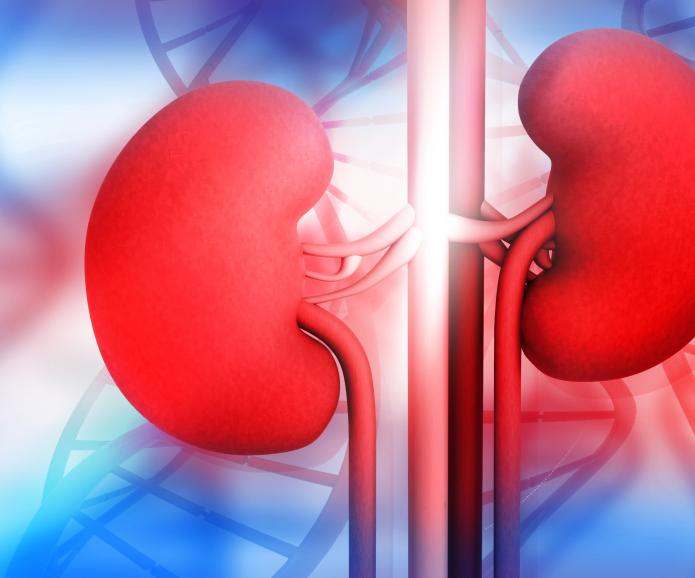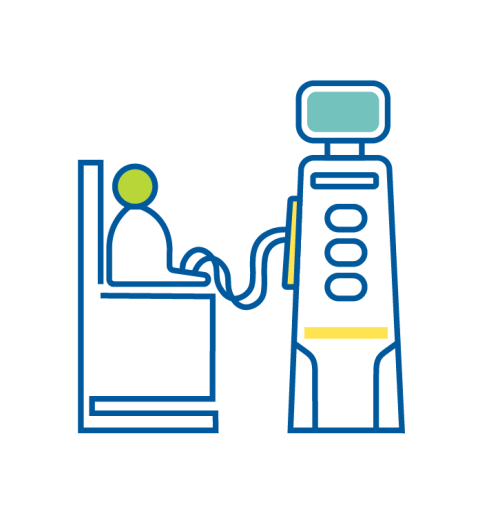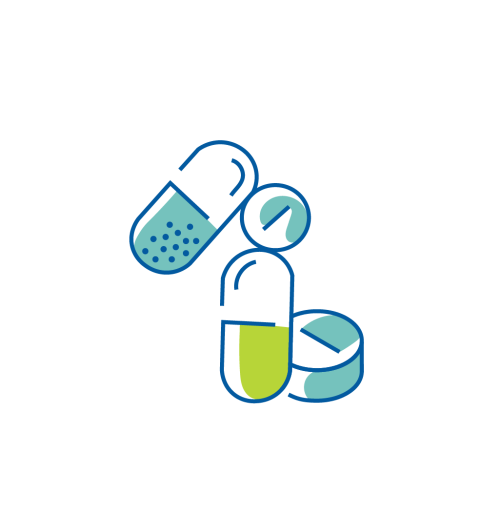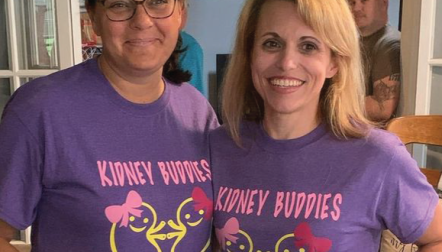
Stage 5 chronic kidney disease (CKD) causes, symptoms and treatment


What is Stage 5 CKD?
Stage 5 CKD means that your kidneys are severely damaged and have stopped doing their job to filter waste from your blood. Waste build up or uremia in your blood and cause other health problems, such as:
- High blood pressure
- Anemia (not enough red blood cells in your body)
- Bone disease
- Heart disease
- High potassium
- High phosphorus
- Metabolic acidosis (a buildup of acid in your body)
A higher uACR stage means more albumin is present in your urine, which indicates more significant kidney damage.
The higher your uACR stage, the greater your risk for kidney disease progressing and complications like heart disease. Understanding your albumin levels, alongside your eGFR, helps you and your doctor plan the best strategy for managing your kidney health and reducing future risks.
What are the symptoms of Stage 5 CKD?
You may have these symptoms in Stage 5 CKD if your kidneys begin to fail:
- Feeling weak and tired
- Swelling in your arms, hands, legs or feet
- Making little or no urine
- Headaches
- Pain in your lower back
- Muscle cramps
- Feeling sick to your stomach or throwing up
- Feeling less hungry than normal
- Trouble breathing
- Changes in your skin color
How can doctors tell my stage of CKD?
To find out what stage of CKD you are in, doctors will do tests, such as:
How can doctors tell what caused my CKD?
To try and find out what caused your CKD, your doctor may do other tests, including:
- Blood pressure checks
- Urine tests
- Imaging tests to take detailed pictures of the inside of your body, such as ultrasound, CT scan or MRI
- Kidney biopsy (a procedure where doctors take a small piece of tissue from your kidneys to look at it under a microscope)
- Genetic testing (if doctors suspect a rare disease or one that runs in your family)
How do doctors treat Stage 5 CKD?
At this stage of CKD, it's important to work with a nephrologist (kidney doctor). Your nephrologist will discuss your treatment options, which include:

- Dialysis: a treatment to clean your blood when your kidneys are not able to.
- A kidney transplant: surgery to give you a kidney from someone else's body.
Be sure to have an open conversation with your doctor about these options. Evaluating early can give you more time to explore your options. Be sure to ask your doctor about both treatments to make an informed decision about what's right for you.
Your doctor will help you decide which treatment is best for you and create a plan to manage your kidney disease. As part of the plan, your doctor may give you medicines to help with your symptoms and other health problems kidney disease can cause, such as diabetes and high blood pressure.
These medicines include:

- Blood pressure medicines like ACE inhibitors and ARBs (even if you do not have high blood pressure, these medicines can help slow the damage to your kidneys to keep them working well as long as possible)
- Diabetes medicines to keep your blood sugar at a healthy level (even if you do not have diabetes)
- Calcium and vitamin D supplements to keep your bones strong
- Diuretics to help with swelling (these are medicines that help your kidneys get rid of salt and water and make you urinate more)
- Phosphorus binders, which prevent your body from absorbing phosphorus from foods you eat
- Erythropoiesis-stimulating agents (ESAs) or iron supplements to help with anemia (i.e., not enough red blood cells in your body)
Your doctor may tell you to stop taking medicines that can damage your kidneys, such as pain medicines called NSAIDs (nonsteroidal anti-inflammatory medicines).
What steps can I take to manage Stage 5 CKD?
While there is no cure for CKD and kidney damage is typically not reversible, there are treatment options that can help you live a longer, fuller life.
Your doctor will recommend that you:
- Have regular visits with a nephrologist to check your blood levels and overall health.
- Meet with a dietitian to help you create and follow a kidney-friendly eating plan. Your eating plan may involve limiting certain things to prevent them from building up in your body, such as fluids, potassium, salt (sodium) or phosphorus. Learn more about a kidney-friendly diet for CKD.
- Keep your blood pressure at a healthy level. They may prescribe blood pressure medicines like ACE inhibitor and ARBs.
- Keep your blood sugar at a healthy level if you have diabetes.
- Be active for at least 30 minutes on most days of the week. This can be anything from walking or riding a bike to swimming or dancing.
- Quit smoking or using tobacco.
How long can I live with Stage 5 CKD?
How long you may live depends on many things, such as:
- Your age when diagnosed with CKD
- How well you follow your treatment plan
- Your overall health
- Your wishes
- Your albuminuria stage (the amount of protein, or albumin, in your urine), which helps determine your risk of kidney disease progression. Higher levels of albumin in your urine indicate a greater risk, so it's important to monitor this closely with your doctor.
How long can I live with Stage 5 CKD?
It's important to recognize that emotional health is just as critical as physical health during this time. Mental health resources are available to help manage these challenges, offering support for coping with the stress of daily treatments, navigating difficult decisions, and finding peace during uncertainty. These resources provide a lifeline, offering emotional support and guidance to help patients and their loved ones find.


